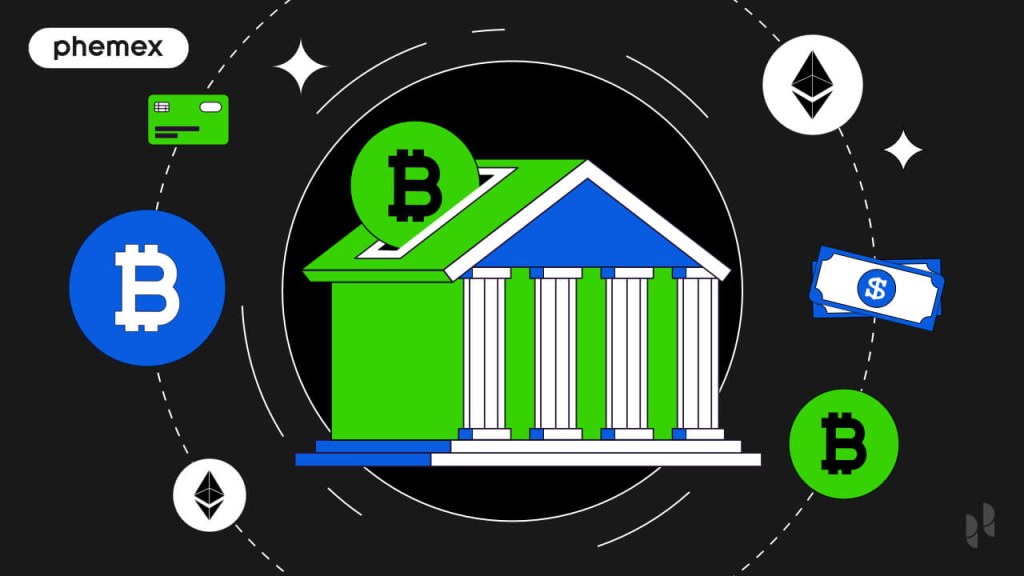Revolutionizing Banking: Unleashing The Power Of Cryptocurrency In Banking For Maximum Returns
Cryptocurrency in Banking
Introduction
Dear Readers,
2 Picture Gallery: Revolutionizing Banking: Unleashing The Power Of Cryptocurrency In Banking For Maximum Returns


Welcome to this informative article on cryptocurrency in banking. In this digital era, where technological advancements are constantly revolutionizing various industries, cryptocurrencies have emerged as a popular topic of discussion. Cryptocurrencies, such as Bitcoin and Ethereum, have gained significant attention and are being explored for their potential integration into the banking sector. In this article, we will delve into the concept of cryptocurrency in banking, its advantages, disadvantages, and its impact on the future of the financial industry.

Image Source: abra.com
So, let’s dive into the fascinating world of cryptocurrency in banking and uncover its potential!
What is Cryptocurrency in Banking? 🏦💰
Cryptocurrency in banking refers to the integration of digital currencies into traditional banking systems. It involves the utilization of blockchain technology to facilitate secure transactions and recordkeeping. Cryptocurrencies enable individuals and businesses to perform financial transactions without the need for intermediaries, such as banks, and provide a decentralized and transparent alternative to traditional banking.
With the rise of cryptocurrencies, banks are exploring ways to leverage this technology to enhance their services, streamline processes, and adapt to the changing needs of customers.
Who is Involved in Cryptocurrency in Banking? 🔍👥

Image Source: phemex.com
The involvement in cryptocurrency in banking is widespread, as it encompasses various stakeholders. These include:
Financial Institutions: Banks and other financial institutions are exploring the integration of cryptocurrencies into their existing systems.
Central Banks: Some countries’ central banks are researching and experimenting with the concept of Central Bank Digital Currencies (CBDCs) as a form of government-backed digital currency.
Regulatory Bodies: Governments and regulatory bodies play a crucial role in defining the legal framework and regulations surrounding cryptocurrencies in the banking sector.
Blockchain Developers: Technological experts and developers are working on creating innovative blockchain solutions for banks to effectively utilize cryptocurrencies.
With the collaboration of these stakeholders, cryptocurrency in banking is gradually becoming a reality.
When Did Cryptocurrency in Banking Begin? ⌛🌍
The concept of cryptocurrency in banking originated with the introduction of Bitcoin, the first decentralized cryptocurrency, in 2009 by an anonymous person or group named Satoshi Nakamoto. Since then, cryptocurrencies have gained traction and have been continuously evolving. The integration of cryptocurrencies into the banking sector is a relatively recent development, with banks exploring the potential benefits and risks associated with this technology.
As cryptocurrencies continue to mature and gain wider acceptance, their role in banking is expected to grow significantly in the future.
Where is Cryptocurrency in Banking Being Implemented? 🌐🏦
Cryptocurrency in banking is being implemented in various parts of the world, albeit at different scales. Some countries are at the forefront of embracing cryptocurrencies, while others are taking a more cautious approach. Countries like Switzerland, Malta, and Singapore have emerged as hubs for cryptocurrency innovation and adoption.
Furthermore, numerous blockchain-based banking solutions are being developed globally to facilitate secure and efficient cryptocurrency transactions. These solutions aim to bridge the gap between traditional banking and the world of cryptocurrencies.
Why is Cryptocurrency in Banking Important? ❓🏦💱
Cryptocurrency in banking offers several potential advantages and opportunities:
Lower Transaction Costs: Cryptocurrencies can reduce transaction costs associated with traditional banking systems, such as fees for international transfers.
Increased Financial Inclusion: Cryptocurrencies can provide access to financial services for the unbanked and underbanked populations, as they do not require traditional banking infrastructure.
Efficient Cross-Border Transactions: Cryptocurrencies can facilitate faster and more efficient cross-border transactions, eliminating the need for intermediaries and lengthy settlement times.
Enhanced Security: Cryptocurrencies leverage advanced cryptographic techniques, making transactions more secure and reducing the risk of fraud.
Transparency: Blockchain technology, which underlies cryptocurrencies, offers transparency and immutability, ensuring the integrity of financial transactions.
Despite these advantages, cryptocurrency in banking also poses several challenges and risks that need to be carefully addressed.
How Does Cryptocurrency in Banking Work? 🔄🔒
Cryptocurrency in banking operates through the utilization of blockchain technology. When a cryptocurrency transaction is initiated, it is verified by network participants through a process known as mining. Once verified, the transaction is recorded in a block and added to the blockchain, creating a permanent and transparent record of the transaction.
Banks can integrate cryptocurrencies into their existing systems by offering digital wallets, enabling customers to store and transact with cryptocurrencies, and partnering with blockchain developers to create secure and efficient solutions.
Advantages and Disadvantages of Cryptocurrency in Banking
Advantages:
Lower transaction costs compared to traditional banking systems.
Increased financial inclusion for unbanked populations.
Efficient cross-border transactions.
Enhanced security through advanced cryptographic techniques.
Transparency and immutability of transactions.
Disadvantages:
Volatility: Cryptocurrencies are highly volatile, which can lead to significant fluctuations in value.
Regulatory Challenges: The lack of clear regulations surrounding cryptocurrencies poses challenges for banks and regulatory bodies.
Security Risks: While blockchain technology is secure, there have been instances of cryptocurrency exchanges being hacked.
Scalability: As cryptocurrencies gain popularity, scalability becomes a concern, as the existing infrastructure may struggle to handle large transaction volumes.
Environmental Impact: The mining process for cryptocurrencies consumes a significant amount of energy, raising concerns about its environmental impact.
Frequently Asked Questions (FAQ)
Q1: Are cryptocurrencies legal in banking?
A1: The legality of cryptocurrencies in banking varies from country to country. While some countries have embraced cryptocurrencies, others have imposed restrictions or outright bans. Banks need to adhere to the existing regulations and legal frameworks of their respective jurisdictions.
Q2: Can cryptocurrencies replace traditional banking systems?
A2: While cryptocurrencies offer certain advantages, such as lower transaction costs and increased accessibility, they are unlikely to replace traditional banking systems entirely. Cryptocurrencies and traditional banking can coexist, with cryptocurrencies serving as an additional option for users.
Q3: How can banks ensure the security of cryptocurrencies?
A3: Banks can enhance the security of cryptocurrencies by implementing robust security measures, such as multi-factor authentication, encryption, and secure storage solutions. Additionally, partnering with reputable blockchain developers can help ensure the reliability and security of cryptocurrency integration.
Q4: Can cryptocurrencies be used for money laundering?
A4: Cryptocurrencies have been associated with money laundering due to their pseudonymous nature. However, advancements in blockchain analytics and increased regulatory scrutiny are making it more challenging to use cryptocurrencies for illicit activities.
Q5: What is the future of cryptocurrency in banking?
A5: The future of cryptocurrency in banking is promising. As cryptocurrencies mature and regulatory frameworks evolve, more banks are expected to adopt and integrate cryptocurrencies into their systems. This integration has the potential to revolutionize traditional banking and provide users with more efficient and secure financial solutions.
Conclusion
In conclusion, cryptocurrency in banking represents an exciting intersection of traditional finance and digital currencies. As banks explore the potential of cryptocurrencies, it is crucial to address the associated advantages, disadvantages, and risks. Cryptocurrencies offer the potential for lower transaction costs, increased financial inclusion, and enhanced security. However, volatility, regulatory challenges, and security risks must be carefully managed.
As we move towards a more digital and interconnected future, the integration of cryptocurrencies into banking systems has the potential to transform the financial industry. It is essential for banks, regulatory bodies, and stakeholders to collaborate and navigate this evolving landscape to harness the benefits of cryptocurrency in banking while mitigating potential risks.
Final Remarks
Dear Readers,
Thank you for joining us on this journey through the world of cryptocurrency in banking. It is important to note that the information provided in this article is for informational purposes only and should not be considered as financial advice.
As with any investment or financial decision, it is recommended to conduct thorough research and consult with professionals before making any decisions related to cryptocurrencies or banking.
Remember, the future of cryptocurrency in banking is still evolving, and it is essential to stay informed and adapt to the changing landscape of the financial industry.
Best regards,
Your Name
This post topic: Blockchain Insights


